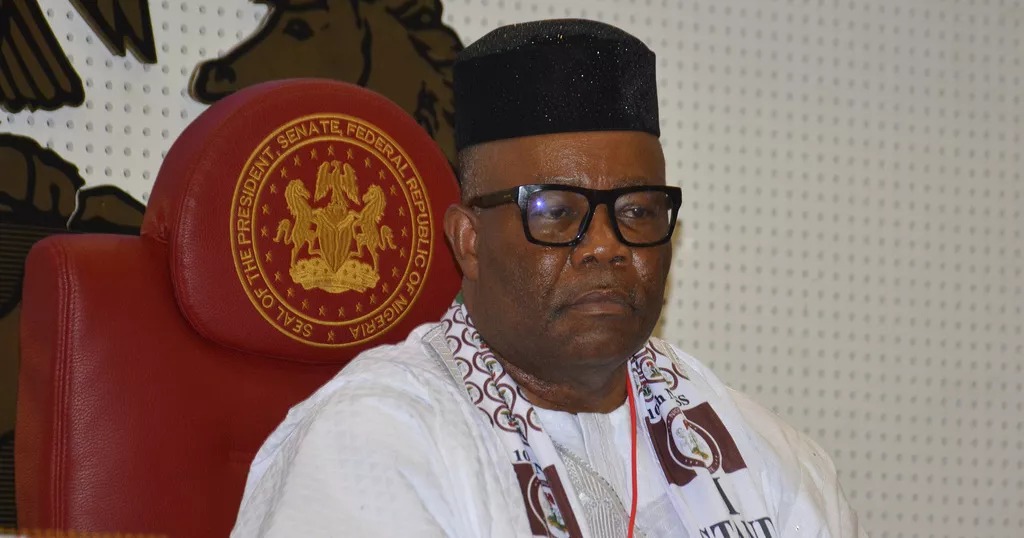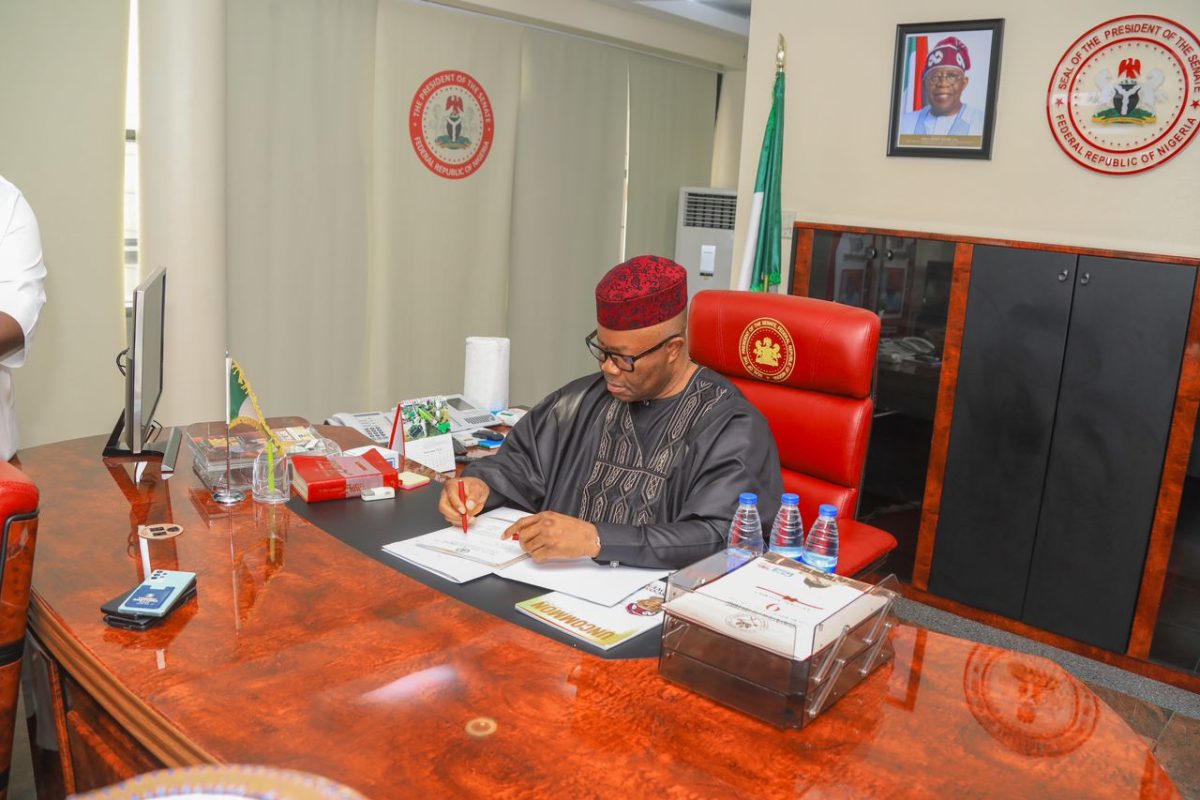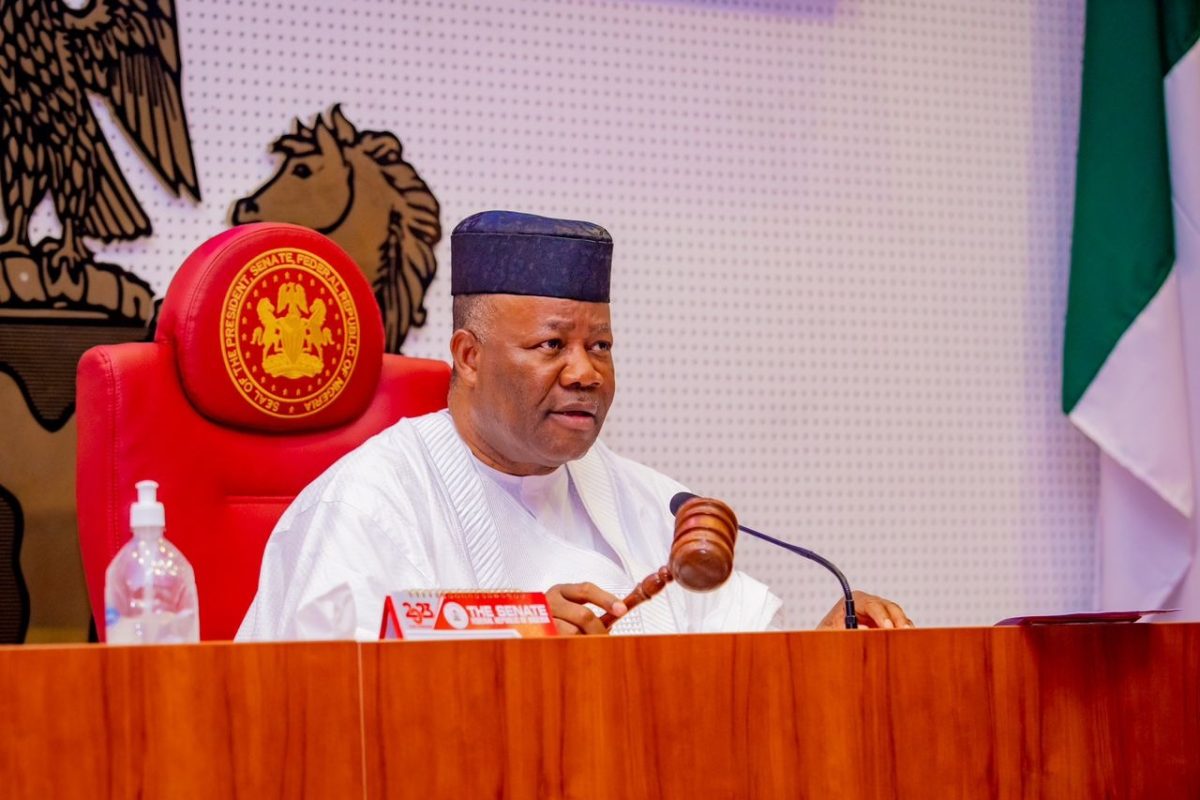Senator Akpabio called for sustained efforts at increasing women’s representation in governance, and the implementation of women-friendly policies that will ensure a minimum level of female representation in political institutions and parties.

The President of the Senate, Senator Godswill Obot Akpabio, has underscored the need for enhanced female participation in governance, noting that while women hold significant roles in various sectors, there remains a gap in executive leadership positions within the country.
Senator Akpabio said this in his opening remarks at the International Conference on Women in Governance organized by the National Institute for Legislative and Democratic Studies on Wednesday.
The conference, themed “Women Representation in Governance: Issues, Challenges, and Way Forward,” aimed to shed light on the critical role of women in politics and decision-making processes.
The Senate President, who commended the organizers for convening the event, emphasized the importance of discussing issues that impact women’s participation in governance, particularly in Nigeria, while highlighting the historical significance of women’s contributions to the nation’s struggle for independence and their ongoing roles in various fields of endeavor.
READ ALSO: “Defective leadership recruitment affects quality legislation” – Epia
The lawmaker also lauded the achievements of Nigerian women, who have risen to leadership positions globally, including positions in international organizations such as the World Trade Center and the United Nations.
according to him, despite the strides made by women in ministerial and governmental agency roles, Nigeria has yet to have a female President, Vice-President, or Executive Governor of a State.
While celebrating recent progress in President Bola Ahmed Tinubu’s cabinet, where seven women were appointed to key positions, and general strides made by women in ministerial and governmental agency roles, the lawmakers noted that Nigeria has yet to have a female President, Vice-President, or Executive Governor of a State.
He further acknowledged that societal biases, stereotypes financial constraints and lack of resources continue to hinder women’s representation and progress in politics, and stressed the importance of addressing these barriers.
“A transformation of gender norms and structural changes within political parties will encourage women’s participation.
“As Nigerians, we also have some structural barriers, such as institutional discrimination, exclusionary political processes, and lack of support networks which together, restrict women’s entry into politics and hinder their progress within political parties.
“This is the same as socio-cultural norms and cultural practices which sometimes discourage women from engaging in politics. We still have discriminatory and patriarchal attitudes and traditional gender roles that limit women’s participation and leadership opportunities.
“We also cannot overlook the role of limited resources and funding in politics and how they work against women. Women often face financial constraints and lack access to resources and funding for their political campaigns. Financial disparities can pose a significant hurdle for women seeking to enter politics or sustain their political careers,” he stated.
In his conclusion, the senate president called for concrete action to increase women’s representation in governance and advocated for the implementation of women-friendly policies, including quotas to ensure a minimum level of female representation in political institutions and parties.
He also stressed the need for political party reforms that promote gender equality, transparent selection processes, and support for women candidates.
The lawmaker further urged the National Institute for Legislative and Democratic Studies to lead public awareness campaigns challenging gender stereotypes and promoting gender equality in governance, adding that by addressing these challenges, Nigeria could achieve a more balanced and effective governance, ultimately benefiting the nation as a whole.
The conference is a significant step toward addressing the gender gap in Nigerian politics and fostering a more inclusive and representative political landscape.



